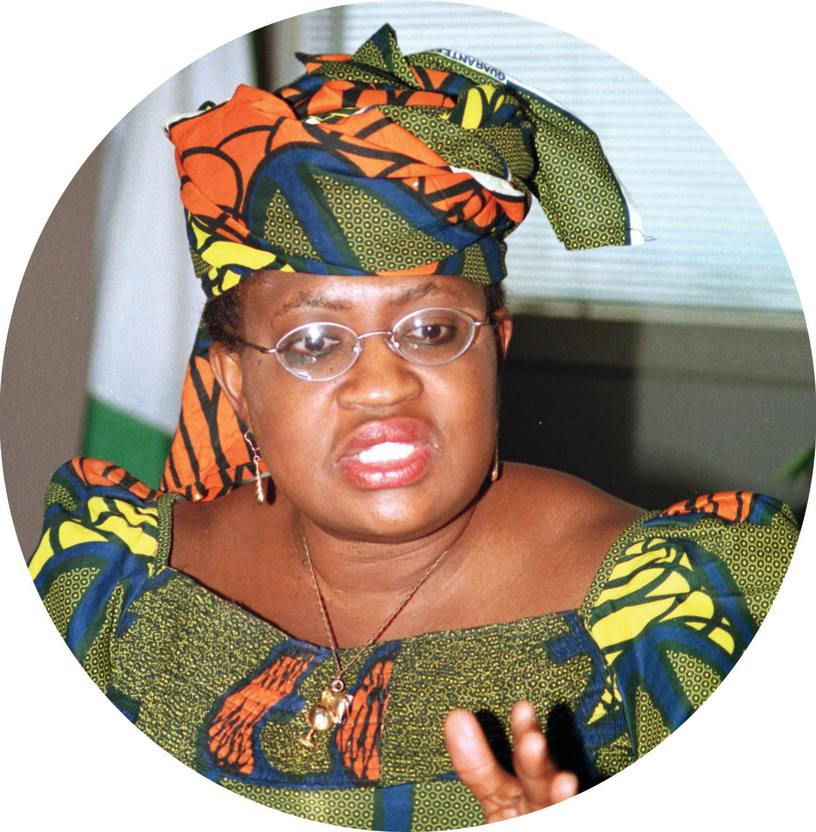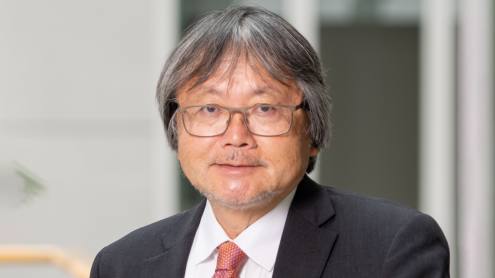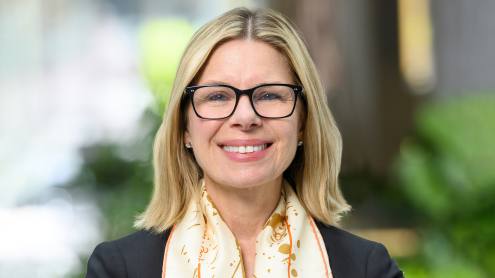For Nigerian president Goodluck Jonathan, getting Ngozi Okonjo-Iweala to return to the country and join his government was a huge coup.
Ms Okonjo-Iweala’s return in mid-August, 2011, followed April’s elections, which were deemed by most international observers as Nigeria’s freest and fairest yet. Her appointment as coordinating minister for the economy and finance minister greatly encouraged investors, who saw it as confirmation of Mr Jonathan’s commitment to reform and modernise the country.
Editor's choice
Prize candidate
Ms Okonjo-Iweala, a graduate of Harvard and Massachusetts Institute of Technology, gained much respect locally and abroad during her previous stint as finance minister from 2003 to 2006, during which time she led negotiations to cancel 60% of Nigeria’s $30bn of Paris Club debt, slashed the country's budget deficit and sacked corrupt officials.
Despite her obvious commitment to Nigeria, Mr Jonathan struggled to lure Ms Okonjo-Iweala back from Washington, DC, where she was a managing director at the World Bank (a position just one rank below the head of the multilateral institution). “It was tough, it took me almost four weeks to decide,” she tells The Banker in Abuja, three weeks into her new job. “President Jonathan was persistent. I was very impressed with that. Each time I thought I had convinced him I was not [going to accept], he would come back again.
“In the case of the World Bank, I really liked my job. In the case of my country, I really feel a deep commitment. I had to interrogate myself. But in the end, I said: ‘Let me come and do it because I think there is a fighting chance I can make a difference.’”
Working like dogs
She has plenty to do, not least diversifying Nigeria’s economy so that it is no longer held hostage to global oil prices, something starkly demonstrated by its slump in 2008 and 2009. So she has hit the ground running. “We are working like dogs,” she says. “There is so much to do, there are so many challenges. But there are so many opportunities to turn things in the right direction. It is exciting.”
Ms Okonjo-Iweala showed her determination to boost government transparency when she straight away resumed the publication online and in newspapers of monthly revenue allocations to Nigeria’s three tiers of government – federal, state and local. She had started this practice in 2004, but it faded out under her successors, despite proving popular with Nigerians.
There is so much to do, there are so many challenges. But there are so many opportunities to turn things in the right direction. It is exciting
“Civil society can look at [the allocations] and analyse what their government has got,” she says. “If you are not getting the services that are supposed to be rendered using this money, you can ask questions. Before, people never even knew. The local government chairman could just say: ‘We did not receive any money this month.’ Now you can debunk that.”
First hurdle
The first big test of her performance will be the 2012 budget, expected to be presented to legislators in November. Ms Okonjo-Iweala wants to allocate more funding to infrastructure – the dire quality of which is one of Nigeria’s biggest problems, particularly when it comes to electricity and transport.
She also wants to decrease recurrent spending, which has ballooned in her absence. The latter, mainly consisting of personnel and overhead costs, makes up a hefty three-quarters of government expenditure and is bloated by leakages and 'ghost' workers – people who draw salaries but do not work.
Ms Okonjo-Iweala also plans to improve revenue collection and cut Nigeria’s fiscal deficit from 7% of gross domestic product (GDP), at which it stood in 2010, to less than 3% by 2015, when the next elections are due. “We will set a trend over the next four years of a tighter budget,” she says. “We will try to rein in spending, particularly recurrent spending, which has been growing and is an ever-larger portion of the budget. We will curb expenditure and collect more revenues.”
Cutting local debt
Another factor concerning Ms Okonjo-Iweala is Nigeria’s domestic debt, which she says is too high and must be reduced. The country has a low debt-to-GDP ratio of 18%, thanks to the Paris Club agreement in 2005 and a rapidly expanding economy in the past two years. But about 85% of those borrowings are denominated in naira, while external debt amounts to just 3% of GDP. “We have a little bit more room for external borrowing, but we do not for domestic borrowing,” says Ms Okonjo-Iweala.
Another of her priorities is to establish a sovereign wealth fund (SWF) for Nigeria, to save some of its vast oil riches for the future. Mr Jonathan signed a bill last year to set up such a fund, which would replace the excess crude account, controversially depleted since 2008.
The bill has yet to be enacted and still faces opposition from Nigeria’s state governors, many of whom are loathe to see any revenues held back from them. Yet Ms Okonjo-Iweala is confident their resistance will be overcome. “[A SWF] is for the benefit of the entire country and we hope to be able to persuade the governors that this is the smart thing to do,” she says. “But we are pressing ahead with implementation. The legislation has already been passed, so we are not waiting. We want to execute.”
[A SWF] is for the benefit of the entire country and we hope to be able to persuade the governors that this is the smart thing to do
In the long term, one of the most serious issues she will have to tackle is fuel subsidies. The government spent about N400bn ($2.6bn) on these last year, 55% more than what it allocated to power projects. Ms Okonjo-Iweala said when she came into office that the federal government wanted them cut completely. But no timeframe has been set and she would not comment on the matter to The Banker, highlighting how sensitive a subject subsidies are, given the impact their removal would have on inflation and the poorest Nigerians.
Wider role
Her position as coordinating minister gives Ms Okonjo-Iweala a far wider remit than when she was last in government, and has even led some local commentators to describe her as Nigeria’s de facto prime minister. The role was President Jonathan’s idea and was crucial to enticing her back to the country.
“He wanted more than a finance minister,” says Ms Okonjo-Iweala. “He wanted a minister who would help him to move all the actors in the economy – including the private sector – in the same direction, so that his priorities are achieved.”
She therefore chairs the newly created implementation arm of the 29-strong national economic management team, which is headed by the president and made up of ministers, civil servants and businessmen. The sub-body, comprising 15 people, meets weekly. Each week a different sector perceived by the government as vital for creating jobs and wealth is discussed, be it agriculture, infrastructure, mining, oil and gas or entertainment.
Ms Okonjo-Iweala cites Nigeria’s film industry, the third largest in the world, as an example of one which the government is trying to help develop. “Nollywood is creating 200,000 direct jobs and 1 million indirect ones,” she says. “With $250m in annual value, it’s nothing to sneeze at. Government does not want to get into it because we did not create it. So we do not want to tamper with it. We just want to give it an enabling environment, such as helping with intellectual property rights and giving it access to finance.”
Undaunted by threats
Nigeria’s macroeconomic position is strong. Real GDP is forecast to rise 7% in 2011, inflation is in single digits for the first time in three years and the naira is fairly stable. Nonetheless, fast growth in itself is doing little to change the fact most Nigerians still live on less than $2 a day, as poor infrastructure and corruption stop much of the country’s wealth spreading to them.
“The worry is that the growth we’ve had has not been creating enough jobs for the population,” she says. “That’s a challenge we obviously need to work on. The other challenge is provision of basic services – power, water, good roads – that Nigerians are looking towards to change their lives.”
The worry is that the growth we’ve had has not been creating enough jobs for the population. That’s a challenge we obviously need to work on
Ms Okonjo-Iweala’s task will be fiendishly difficult. Despite Nigeria’s abundant natural resources and rising middle class, it remains blighted by graft, bad governance and deep divisions – ethnic and religious – among its people. It helps that Mr Jonathan is firmly on her side. “It makes it easier to have a president who is totally behind you and always ready to listen,” she says. “It also makes it possible to enjoy the job a little.”
Even for someone with the president as a close ally, Nigerian politics can be ruthless. Ms Okonjo-Iweala was reminded of this even before she left the US. “There are people who did not want me to come back,” she says. “They made it very, very clear. My relatives received threats, saying: ‘If she comes back, there will be consequences.’”
She insists, however, that her opponents will not stop her carrying out the reforms Nigeria so badly needs. “Those who are corrupt are scared,” she says. “They do not want me back because they associate [my return] with more transparency, with fighting corruption, with being above board and with trying to do the right thing for the country. There are those in whose interests these are not. They want things to continue in a chaotic fashion.
“But I am not at all daunted. They will never succeed in diverting my attention.”












